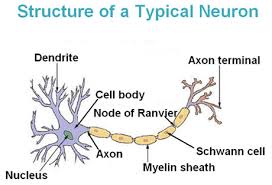The progression of Parkinson’s disease
In the early stages of the disease symptoms can be moderate enough to not have an effect on the daily life of the individual. Drug treatment is often started when the ability to perform daily tasks is impaired by the disease. With Parkinson’s disease being of such a progressive nature, in later stages often drug treatments which are very effective in early stages lose their effect. In early stages often symptoms are limited to tremors, joint pain, weakness and fatigue. However as time passes, often a moderate stage is reached. Here the person may have difficulty moving, and become slower, suffers stiff muscles, poor balance and poor coordination. Commonly reported is shifts in hand writing and speech, as movement of facial muscles also often become stiff and impaired. In a moderate stage of Parkinson’s disease many individuals can still walk, however often can be identified as tendencies to walk stooped over with quick and uneven steps.
All patients suffering with Parkinson’s disease do no reach such a progressive state as the advanced stage. Here, often after many years tremors increase, for those only affected on one side, it can also spread to effect both sides. Muscle stiffness and joint pain increase and the person may become unable to walk, and unable to care for him or herself. In this stage you will see many patients confined to a wheelchair or even a bed. As in the advanced stages after years of medication, the drugs also lose effectiveness, Parkinson’s disease can progress to a point where it is difficult to control as drugs are ineffective. A risk of dementia developing is present, and one of three persons who suffers the advanced stages of the disease will also suffer the dementia.
The Progression of Parkinson’s Disease for Drain Engineers
In the realm of drain engineering, a growing concern is the impact of Parkinson’s disease on professionals in this field. Parkinson’s disease, a neurodegenerative disorder that primarily affects movement, can pose unique challenges for drain engineers as they navigate their daily tasks. This article delves into the intricate progression of Parkinson’s disease, its implications for drain engineers, and strategies to cope with its effects.
Understanding Parkinson’s Disease
Parkinson’s disease is a progressive nervous system disorder that affects movement. It occurs due to the gradual loss of dopamine-producing cells in the brain. The disease’s exact cause remains unclear, making early detection and management vital.
Early Symptoms and Diagnosis
Recognizing the early symptoms of Parkinson’s disease is crucial for timely intervention. These may include tremors, muscle rigidity, slowed movements, and changes in speech. However, diagnosis can be complex, often involving neurological examinations and scans to rule out other conditions.
Impact on Motor Skills and Precision
For drain engineers, the deterioration of motor skills and precision can significantly hinder their ability to perform tasks. Delicate maneuvers and intricate adjustments become challenging, affecting the quality and efficiency of their work.
Cognitive Challenges Faced
Beyond motor difficulties, cognitive challenges can also arise. Drain engineers might experience issues with focus, memory, and decision-making, leading to potential errors or oversights in their projects.
Medication Management and Drain Engineering
Proper management of medication schedules is vital for drain engineers with Parkinson’s disease. Fluctuations in medication effectiveness can impact their performance on the job, emphasizing the need for consistent monitoring.
Developing a Supportive Work Environment
Creating a supportive and understanding work environment is essential. Employers and colleagues can contribute by offering flexibility, reasonable accommodations, and open communication to ensure the engineer’s well-being.
Adaptive Technologies for Drain Engineers
Advancements in technology provide solutions for drain engineers to overcome challenges. Specialized tools, assistive devices, and ergonomic workstations can enhance their capabilities and maintain their productivity.
Lifestyle Modifications for Mitigating Symptoms
Lifestyle modifications, including regular exercise, a balanced diet, and stress management, can help manage Parkinson’s symptoms. These practices contribute to overall health and may positively impact the engineer’s professional performance.
Balancing Professionalism and Health
Drain engineers may find it challenging to balance their commitment to their profession with their health needs. Striking a balance between work responsibilities and self-care is crucial for long-term well-being.
Collaborative Efforts within the Industry
Fostering a sense of collaboration within the drain engineering industry is beneficial. Sharing experiences, insights, and strategies among professionals can create a supportive community and promote awareness.
Strategies for Long-Term Career Sustainability
As Parkinson’s disease progresses, drain engineers can explore transitioning to roles that align with their evolving abilities. Specialized consultancy, teaching, or advisory positions offer opportunities for continued engagement in the field.
Navigating Occupational Limitations
It’s important to acknowledge and adapt to limitations. As symptoms change, drain engineers may need to adjust their responsibilities or explore alternative ways to contribute to projects.
Raising Awareness and Fostering Empathy
Raising awareness about Parkinson’s disease within the drain engineering sector can foster empathy and understanding. Education initiatives can dispel misconceptions and encourage a more inclusive work environment.
The Role of Research and Innovation
Research and innovation play a pivotal role in improving the lives of drain engineers with Parkinson’s disease. Advancements in treatment, assistive technologies, and supportive interventions can lead to enhanced work experiences.
Conclusion
The progression of Parkinson’s disease presents unique challenges for drain engineers. However, with a supportive network, adaptive strategies, and a commitment to well-being, professionals in this field can continue to contribute meaningfully while managing their health.
